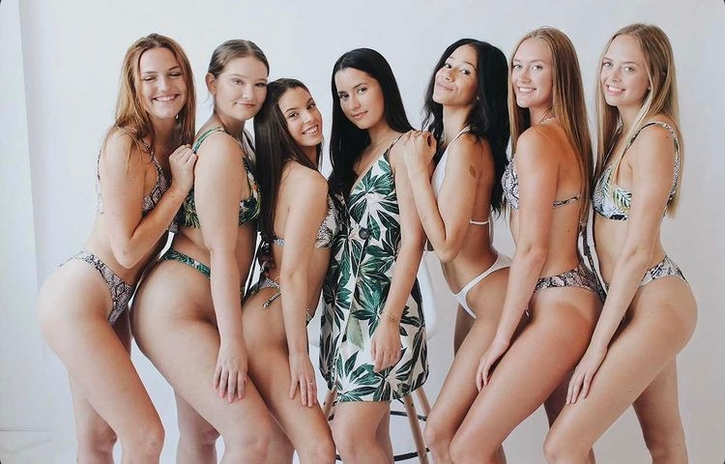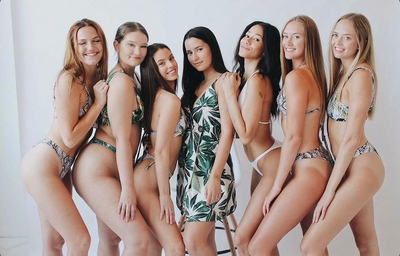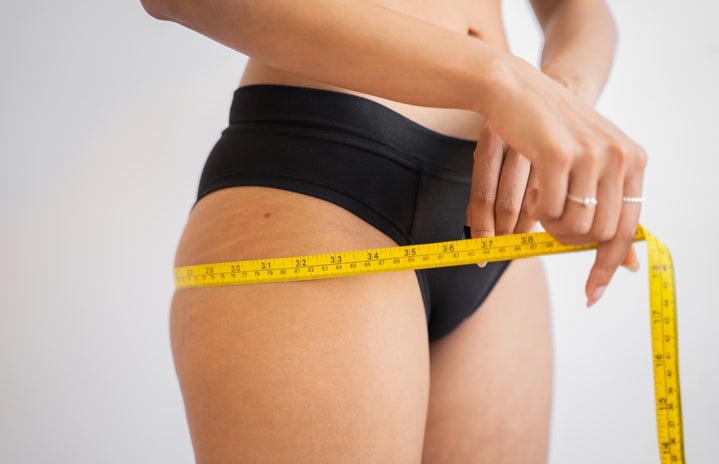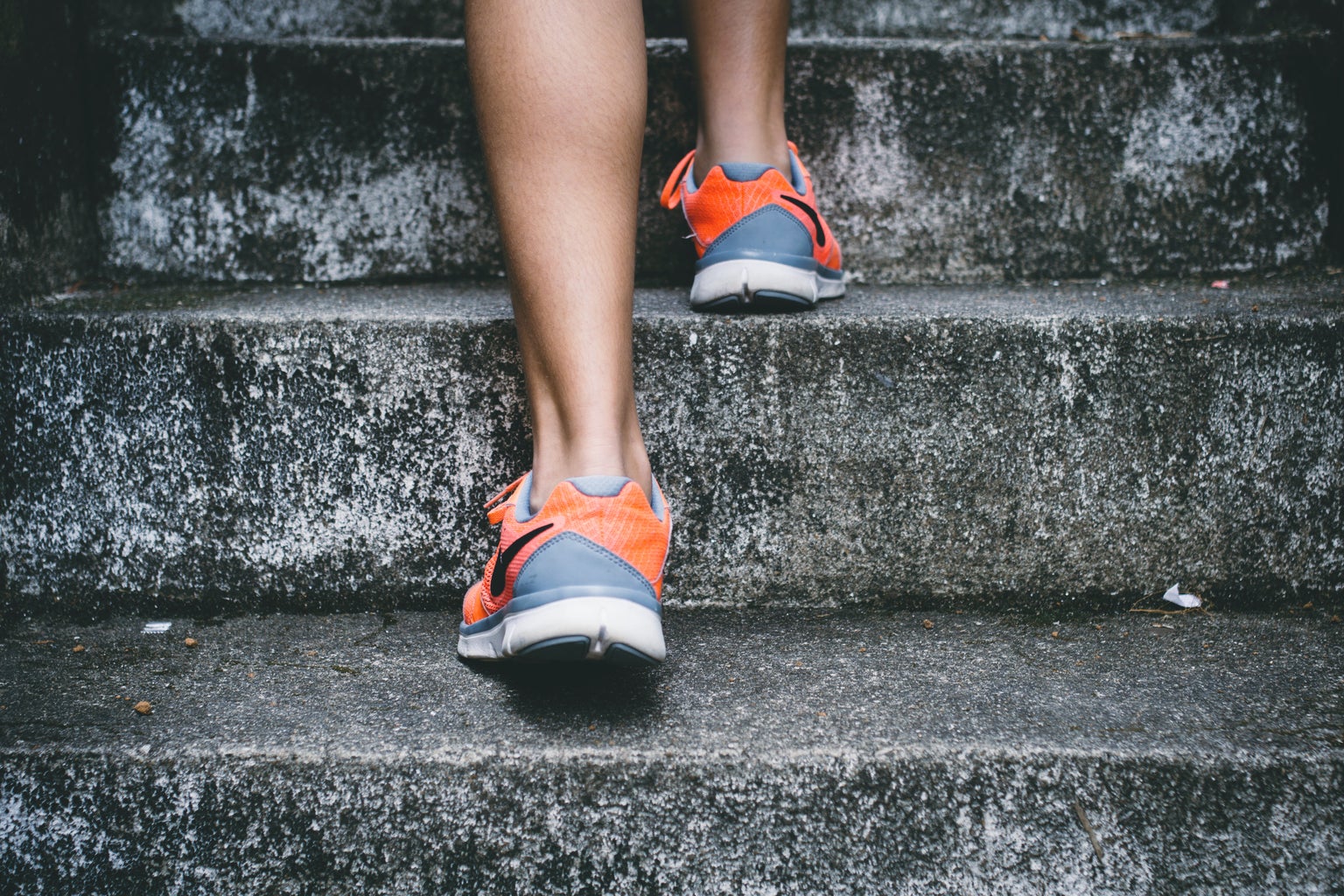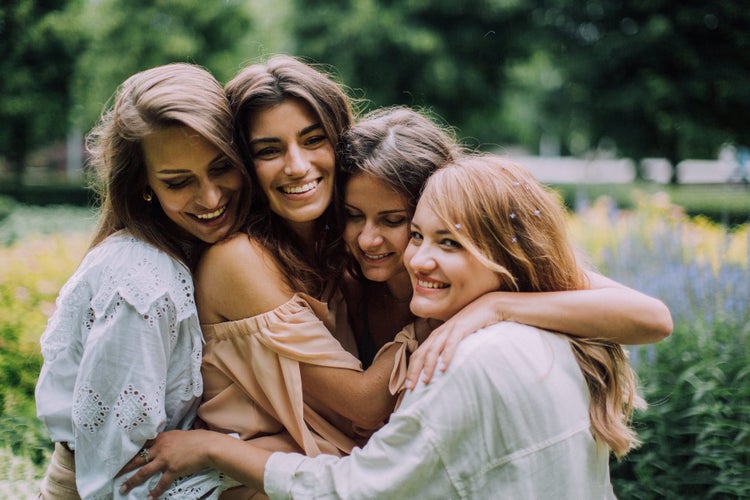I’d say that about 75 percent of my thoughts are about my body. Sometimes it’s a passing thought —does the person sitting next to me in class see how big my stomach looks in these shorts? And other times it becomes an obsession, spending hours looking at my old photos and comparing my face shape and waist size, thinking I was so much skinnier in high school.
I was running five to eight miles every other day until I broke my foot about two weeks ago. I’m now stuck with a boot and crutches for six weeks. My physical therapist said I was pushing myself too hard, and the constant running and pounding on my feet was too much, so my foot had no choice but to cave in and break after stepping on it wrong one time.
I started counting calories. This morning my granola bar was 100 calories, and my smoothie was 250—I have the calorie count memorized by now. A third of the TikToks I save are inspiring body transformations and workout routines. Whenever my mom buys me new clothes, I refuse to try them on in front of her out of fear of being judged for something not fitting. I weigh myself about once a week (only when it’s first thing in the morning so I can hold onto that “morning skinny”), and I keep track of my progress in the notes on my phone. Being completely honest, I think the line between a healthy outlet and an unhealthy obsession has gotten very blurry for me.
I stopped allowing myself to scroll through Instagram a little over four weeks ago because it was drastically affecting my mental health. I’m not stupid. I know that social media creates unrealistic expectations for women’s bodies, but just knowing that fact doesn’t make it any easier to ignore. I can’t help but compare the (highlight reel) of skinny bodies on my feed to my chunky hips and filled-out face.
My sister’s skinny skinny, not in an unhealthy way, it’s just what her body type is. It doesn’t matter what she eats, how much she eats or how often she works out, she’ll never gain weight. When she turned 16 she joked about putting 99 pounds on her driver’s license. That was four years ago—I still think about it.
I love my sister more than anything, and she has never and would never say anything to suggest that my body isn’t as beautiful or as worthy as hers, but that doesn’t stop my insecurities from seeping through. She doesn’t know how many calories are in her morning granola bar, and she doesn’t have to think twice about eating that second cookie. And sometimes I resent her for it. I resent her for making me feel less beautiful when it’s completely out of her control and in my own head.
I got my sorority composite picture taken today and the photographer told me five times to put my shoulders down until I finally had to say, “This is as far down as they go,” and I watched her face recoil—as if she was disgusted by the fact that my shoulders are a little more raised and broader than the average girl.
When you really think about it, it’s weird that there’s a very specific “bikini-model” body type that society labels as beautiful because everyone physically can’t achieve that—no matter what diet you’re on or how many miles you run. Some people’s hips will always be wider, boobs a little smaller and shoulders a little broader. I know this, yet I’m still overwhelmed and obsessed with this notion of being skinny. I think we all are, in a way. Some are just better at hiding it.
I think the only thing we can do as women is support one another. Be honest about your body struggles because I can pretty much guarantee your best friend, sister and classmate are dealing with it too. Don’t edit your body for Instagram—that only damages your own self-esteem and adds to the vicious cycle of unrealistic and unhealthy body “goals.”
No one is going to feel 100% confident about the way they look overnight, but I think women supporting women is the first step to feeling a little less insecure and overwhelmed by the belief that you aren’t good enough solely because of the way you look—because that’s not true.
You are enough. You are worthy. And you are beautiful just the way you are:)
